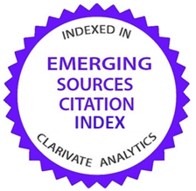Riesgos de seguridad física de plataformas y unidades offshore oil & gas en el mar Caribe colombiano
DOI:
https://doi.org/10.21830/19006586.671Palabras clave:
abastecimiento de energía, mar Caribe, minería submarina, seguridad energética, seguridad marítimaResumen
Este artículo analiza los riesgos de seguridad física de las plataformas y unidades móviles de exploración y explotación de hidrocarburos costa afuera (offshore) en el mar Caribe colombiano. Para ello, se hace una revisión conceptual, se estudia la literatura relevante y se analizan los riesgos resultantes. Una vez establecidos los criterios de clasificación y medición, se examina el impacto y la probabilidad de ocurrencia de eventos violentos que pudieran afectar estas plataformas y unidades. Como resultado, se concluye que la mayoría de riesgos son de tipo asimétrico, con un nivel de probabilidad baja y media de ocurrencia, entre los cuales se destacan el terrorismo y las acciones hostiles entre Estados por su potencial impacto. Se propone ejercer mejor control del territorio marítimo en pro de la seguridad marítima y energética.
Descargas
Referencias bibliográficas
Acosta, C., & Franco, J. (2015). Extracción de hidrocarburos costa afuera en Colombia: panorama legal y retos a partir de las zonas francas costa afuera u offshore. Revista e-Mercatoria, 14(1), 57-92. https://doi.org/10.18601/16923960.v14n1.03
Agencia Internacional de la Energía (IEA). (2018). Energy security. https://www.iea.org/topics/energy-security
Ávila-Zúñiga-Nordfjeld, A. (2018). Building a national maritime security policy [tesis doctoral, World Maritime University, Suecia].
Ávila-Zúñiga-Nordfjeld, A., & Dalaklis, D. (2018). Opening of offshore oil business in Mexico and asso¬ciated framework to cope with potential maritime security threats. TransNav, the International Journal on Marine Navigation and Safety of Sea Transportation, 12(1), 173-179. https://doi.org/10.12716/1001.12.01.20
Bajpai, S., & Gupta, J. (2007). Securing oil and gas infrastructure. Journal of Petroleum Science and Engineering, 55(1-2), 174-186. https://doi.org/10.1016/j.petrol.2006.04.007
Bolz, F., Dudonis, K., & Schulz, D. (2012). The counterterrorism handbook: Tactics, procedures, and tech¬niques (4.ª ed.). CRC Press.
Cadena, J. (2010). Geopolítica del narcotráfico, México y Colombia: la equivocación en el empleo de las fuer¬zas militares. Revista Mexicana de Ciencias Políticas y Sociales, 52, 45-58. https://doi.org/10.22201/fcpys.2448492xe.2010.210.25973
Cancillería de Colombia. (2018). Fronteras Marítimas. https://www.cancilleria.gov.co/politica/fronteras-ma¬ritimas
Central Intelligence Agency (CIA). (2020). Venezuela. The World Factbook. https://bit.ly/2ZVA6TY
Christopher, K. (2009). Port security management. Auerbach Publications. https://doi.org/10.1201/9781420068931
Christopher, K., & Karch, S. (2014). Port security management. CRC Press. https://doi.org/10.1201/b17142
Constitución de la República Bolivariana de Venezuela. (1999). Gaceta Oficial Extraordinaria 36860. https://www.oas.org/dil/esp/constitucion_venezuela.pdf
Corte Penal Internacional. (2012, 19 de noviembre). Territorial and maritime dispute (Nicaragua v. Colombia). Judgment of 19 November 2012. http://www.cancilleria.gov.co
Departamento Administrativo de Función Pública (DAFP). (2018). Guía para la administración del riesgo y el diseño de controles en entidades públicas. https://bit.ly/33Gntx4
Department of Homeland Security (DHS). (s. f.). Chronology of changes to the Homeland Security Advisory System. Consultado en septiembre de 2020. https://www.dhs.gov/homeland-security-advisory-system
Dirección General Marítima (DIMAR). (2018, 24 de agosto). La Dirección General Marítima lidera forta¬lecimiento de la Seguridad Marítima Integral. https://bit.ly/2FKWEjm
Dishman, C. (2001). Terrorism, crime, and transformation. Studies in Conflict and Terrorism, 24(1), 43-58.
El País. (2008, 21 de diciembre). Piratas atacan de nuevo en Buenaventura. https://www.elpais.com.co
El Tiempo. (2011, 17 de diciembre). Pescadores bloquearon acceso a bahía de Cartagena. https://www.eltiem-po.com/archivo/documento/CMS-10918189
Greenpeace Colombia. (s. f.). Nuestra historia. Greenpeace. Consultado en septiembre de 2020. https://www.greenpeace.org/colombia/nuestra-historia/
Grimaldo-Guerrero, J., & Contreras-Rueda, Y. (2020). Offshore oil exploitation in the Caribbean Sea: Challenges for Colombia. IOP Conference Series: Materials Science and Engineering, 844. https://hdl.handle.net/11323/6573
Harel, A. (2012). Preventing terrorist attacks on offshore platforms: Do States have sufficient legal tools? Harvard National Security Journal, 4, 131-184. https://bit.ly/3mFDqMF
Herbert-Burns, R., Bateman, S., & Lehr, P. (eds.). (2008). Lloyd’s MIU handbook of maritime security. Auerbach Publications. https://doi.org/10.1201/9781420054811
ICC International Maritime Bureau. (2018). Piracy and armed robbery against ships [reporte anual]. International Chamber of Commerce. https://www.icc-ccs.org/reports/2018_Annual_IMB_Piracy_ Report.pdf
ICC International Maritime Bureau. (2020). Piracy and armed robbery against ships [reporte anual]. International Chamber of Commerce. https://icc-ccs.org/reports/2020_Q1_IMB_Piracy_Report.pdf
Jenkins, B. (1988). Potential threats to offshore platform [paper]. RAND Corporation. https://www.rand.org/pubs/papers/P7406.html
Kaplan, R. (2014, 2 de abril). The geopolitics of energy. Stratfor. Global Intelligence. http://www.ctcitraining.org/topdocs/GeopoliticsEnergy.pdf
Kashubsky, M. (2011). Offshore petroleum security: Analysis of offshore security threats, target attractive¬ness, and the international legal framework for the protection and security of offshore petroleum installations [doctoral thesis, Faculty of Law, University of Wollongong]. http://ro.uow.edu.au/the¬ses/3662/
Klein, N., Mossop, J., & Rothwell, D. (eds.). (2009). Maritime security: International law and policy perspectives from Australia and New Zealand. Routledge. https://doi.org/10.4324/9780203867471
Lewis, T. (2006). Critical infrastructure protection in homeland security. En Critical infrastructure protec¬tion in homeland security: Defending a networked nation (pp. 463-474). Jon Wiley & Sons.
Marlow. P. (2010). Maritime security: An update of key issues. Maritime Policy & Management, 37(7), 667- 676. https://doi.org/10.1080/03088839.2010.524734
Mejía, M. (2007). Law and ergonomics in maritime security [thesis, Department of Design Sciences, Faculty of Engineering, Lund University].
Ministerio de Defensa Nacional. (2020a). Información de criminalidad, resultados operacionales y delitos contra las propias tropas. Grupo de Información Estadística. https://bit.ly/35ZfpdI
Ministerio de Defensa Nacional. (2020b, julio). Logros de la política de defensa y seguridad. Grupo de Información Estadística. https://bit.ly/33RR1HZ
Ministerio de Minas y Energía. (2020). Histórico Reservas probadas y producción de petróleo 2010-2018. https://bit.ly/2Gcqlti
Ministerio del Poder Popular de Venezuela. (2018). Fuerza Armada. http://www.mindefensa.gob.ve/minde-fensa/fuerzaarmada/
Mitchell, J., Marcel, V., & Mitchell, B. (2012). What next for the oil and gas industry? Chatham House; The Royal Institute for International Affairs.
Peña, C., Sierra, P., & Hoyos, J. (2019). La política de fronteras de Colombia ante las nuevas amenazas de seguridad y defensa. Revista Científica General José María Córdova, 17(28), 773-795. https://doi.org/10.21830/19006586.473
Post, J., Ruby, K., & Shaw, E. (2002). The radical group in context: 2. Identification of critical elements in the analysis of risk for terrorism by radical group type. Studies in conflict and terrorism, 25(2), 101-126. https://doi.org/10.1080/105761002753502475
Prieto, C. (2012). Bandas criminales en Colombia: ¿amenaza a la seguridad regional? Revista Opera, 12, 181-204.
Rázuri, V. (2020). ¿Conciencia o identidad marítima? Un acercamiento a la relación del hombre con el mar. Revista Científica General José María Córdova, 18(30), 419-435. https://doi.org/10.21830/19006586.576
Sánchez, J., Montero, L., Ardila, C., & Ussa, A. (2011). Logística militar en los conflictos del siglo XXI. El espacio y los retos ofrecidos por la guerra asimétrica. Revista Científica General José María Córdova, 9(9), 15-32. https://doi.org/10.21830/19006586.243
Sánchez, J., Montero, L., Ardila, C., & Ussa, A. (2012). Discusión epistemológica de la guerra asimétrica: adopción contemporánea de la asimetría interestatal. Revista Científica General José María Córdova, 10(10), 91-105. https://doi.org/10.21830/19006586.229
Saumeth, E. (2010). Historia de la guerrilla en Colombia. Universidad Federal de Juiz de Fora. http://ecsb-defesa.com.br/defesa/fts/HGC.pdf
Schmid, A. (2011). The Routledge handbook of terrorism research. Taylor & Francis.
Suárez, A. (2002). Las barras bravas en Bogotá, análisis y alternativas [trabajo de grado, Universidad Libre de Colombia]. http://hdl.handle.net/10901/6922
Torrijos-Pulido, S. (2016). El desacato: una alternativa política perdida en la marea del tradiciona¬lismo jurídico. Revista Científica General José María Córdova, 14(18), 27-46. https://doi.org/10.21830/19006586.41
Unidad de Planeación Minero-Energética (UPME). (2015). Plan Energético Nacional. Colombia: Ideario Energético 2050. https://bit.ly/3i2OzDC
Vargas, B., Rada, A., & Cabarcas, M. (2020). Gas transport at dense phase conditions for the development of deepwater fields in the Colombian Caribbean Sea. CT&F. Ciencia, Tecnología y Futuro, 10(1), 17-32. https://doi.org/10.29047/01225383.131
Virzo, R. (2015). Coastal State competences regarding safety of maritime navigation: Recent trends. Seqüência, 36(71), 19-42. https://doi.org/10.5007/2177-7055.2015v36n71p19
Weinberg, D. (2008). Homeland security perspective on threats and challenges. En J. Voeller (ed.), Wiley handbook of science and technology for homeland security. John Wiley & Sons. https://doi.org/10.1002/9780470087923.hhs059
Zech, S., & Gabbay, M. (2016). Social network analysis in the study of terrorism and insurgency: From orga¬nization to politics. International Studies Review, 18(2), 214-243. https://doi.org/10.1093/isr/viv011
Descargas
Publicado
Cómo citar
Número
Sección

| Estadísticas de artículo | |
|---|---|
| Vistas de resúmenes | |
| Vistas de PDF | |
| Descargas de PDF | |
| Vistas de HTML | |
| Otras vistas | |
























